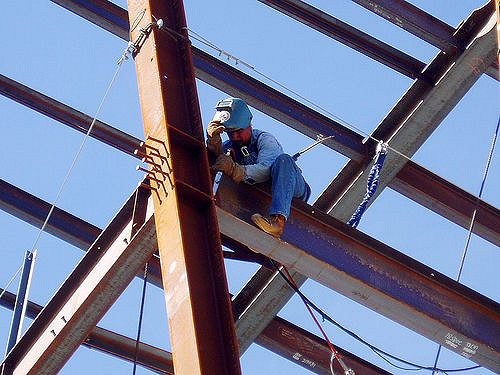How much will President Trump’s plans to implement a 25 per cent tariff on imported steel and 10 per cent on aluminum cost California’s construction industry?
The answer is unclear, as much are details of the new import duties’ final implementation. Administration representatives say there will be no “country” exemptions, but there may be specific exemptions for certain businesses. Details of the new rules are expected to be released by mid-March.
California’s construction industry will likely feel the pain, both directly and indirectly. Most of the steel products manufactured and fabricated in this state are made from imported steel, in part because it is much less expensive to transport the steel slabs from Asia than it is to ship them from the eastern U.S.
Steel, of course, is used directly in construction for products such as steel bars and concrete rebar, but also factors indirectly in manufactured products both used in buildings and in the equipment to build them. For example, shares of Caterpillar declined by more than 2% when the tariffs were announced.
California steel industry leaders and analysts argue that the tariffs would provide no benefits to steel manufacturers on the West Coast — companies that import steel in the form of slabs and coils, rather than making it from iron ore. They use that to create finished products for a vast array of businesses across the United States, the Los Angeles Times reports.
In addition to the direct cost implications, there are indirect implications including an economic slow-down because of higher costs, and, more seriously, the possibility the steel fight will extend to a much broader trade war, casting a pall on the overall economy.
“The worst-case scenario is we continue to spiral into a trade war,” said Jonathan Aronson, a USC professor of communications and international relations. “My guess is that people will get the president to mitigate or delay acting, but he’s unpredictable.”
West Coast, steel manufacturers largely depend on imported steel from Brazil, Japan, South Korea, Taiwan and Australia.
Last year, California imported almost $2 billion in iron and steel, a 6% increase from the previous year, the LA Times reported. The state imported $2 billion worth of aluminum, a 25% increase from the previous year. About 38% of imported aluminum came from China, according to an analysis by Jock O’Connell, the international trade advisor at Beacon Economics.














